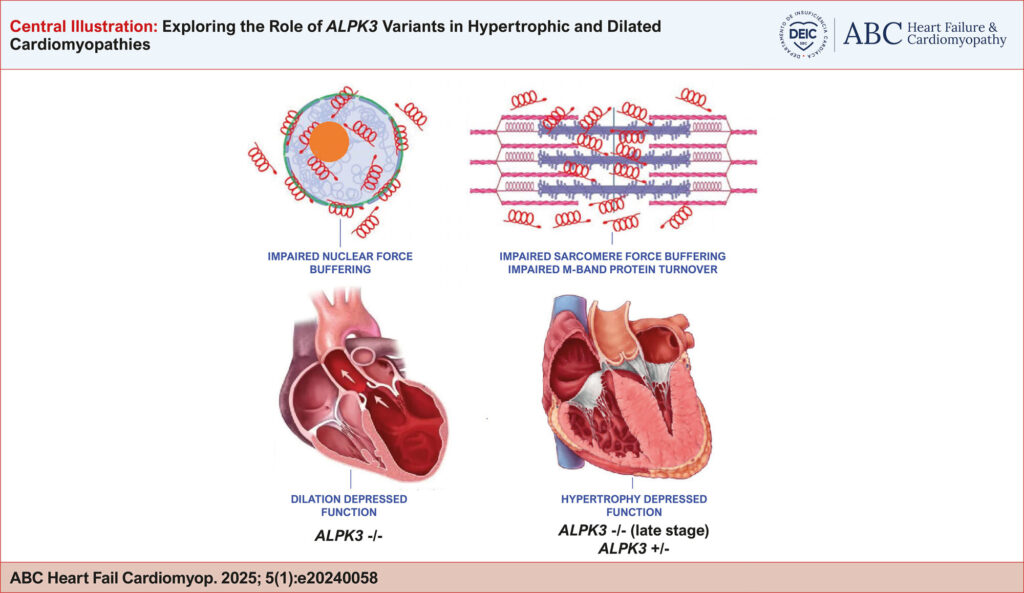ABC Heart Fail Cardiomyop 2025; 5(1): e20240058
Exploring the Role of ALPK3 Variants in Hypertrophic and Dilated Cardiomyopathies
Abstract
Alpha-protein kinase 3 (ALPK3) variants, particularly truncating mutations (ALPK3tv), have been associated with both hypertrophic cardiomyopathy (HCM) and dilated cardiomyopathy (DCM), contributing to phenotypic variability and severe clinical outcomes. HCM is characterized by left ventricular hypertrophy (LVH) not attributable to other causes and is a common genetic disorder, often linked to pathogenic variants in sarcomeric genes. However, clinical genetic testing fails to identify a causative mutation in approximately 40% of the cases, suggesting the involvement of non-sarcomeric genes such as ALPK3. Recent studies have revealed that biallelic ALPK3tv is associated with severe early-onset cardiomyopathy. Patients may exhibit a clinical progression from DCM in infancy to HCM, with impaired systolic function in later life. The HCM phenotype in these individuals is often characterized by extensive myocardial fibrosis, apical or concentric patterns of left ventricular hypertrophy, and a low prevalence of left ventricular outflow tract obstruction. ALPK3tv carriers are also at risk for progressive myocardial dysfunction, heart failure, and, in some cases, sudden cardiac death. The molecular mechanisms underlying ALPK3-related cardiomyopathy involve the disruption of key structural and regulatory proteins, such as myomesins, which are essential for sarcomere integrity and cardiomyocyte force buffering. The discovery of ALPK3 variants in underrepresented populations further highlights the importance of genetic research in diverse cohorts. Understanding the clinical and molecular consequences of ALPK3 variants could lead to more precise diagnostic and therapeutic approaches for cardiomyopathies associated with this gene.
610


